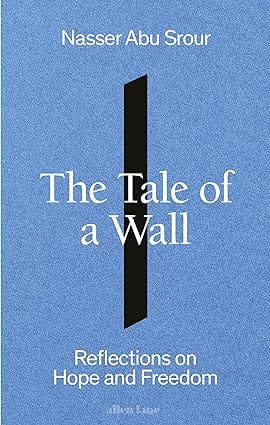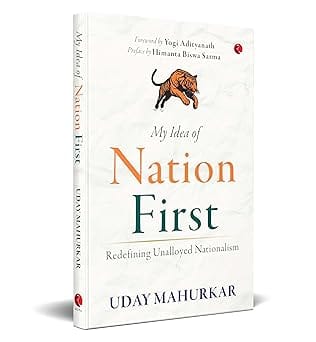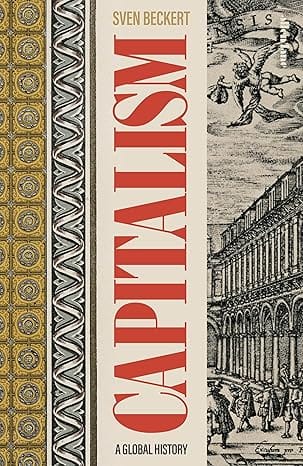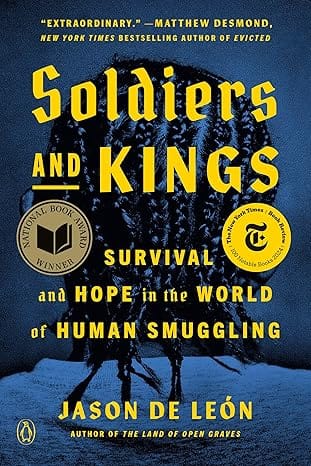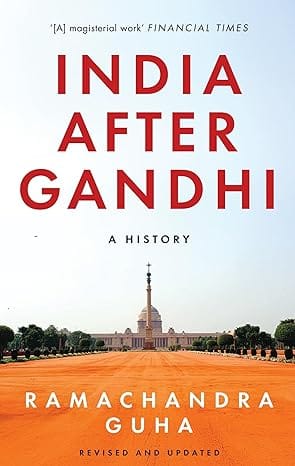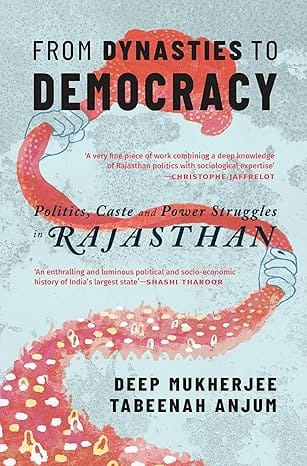WELCOME TO MIDLAND BOOK SHOP!
SHOP FOR
- Non-ficton
- Non-ficton
- Contemporary Fiction
- Contemporary Fiction
- Children
- Children
- Comics & Graphic Novels
- Comics & Graphic Novels
- Non-Fiction
- Non-Fiction
- Fiction
- Fiction
Shop No.20, Aurobindo Palace Market, Hauz Khas, Near Church +91 9818282497 | 011 26867121 110016 New Delhi IN
Midland The Book Shop ™
Shop No.20, Aurobindo Palace Market, Hauz Khas, Near Church +91 9818282497 | 011 26867121 New Delhi, IN
+919871604786 https://www.midlandbookshop.com/s/607fe93d7eafcac1f2c73ea4/69591829db7aed90e0608dfb/without-tag-line-480x480.png" [email protected]9780241705384 6668451ff02f04a08a71b803 The Tale Of A Wall Reflections On Hope And Freedom https://www.midlandbookshop.com/s/607fe93d7eafcac1f2c73ea4/66684520f02f04a08a71b84d/91zpk5ppjhl-_sy425_.jpg
Review
The Tale of a Wall charts a deeply personal journey through the conflict that has defined Nasser Abu Srour’s life… extraordinary… his humanity shines through, even as he endures an incarceration with no end in sight… his poetic sensibility brings freshness to the telling of the well-rehearsed story of this long-running conflict: we see it anew -- Lydia Wilson - Guardian
Nasser Abu Srour fights for everybody's freedom… thoughtful and honest… The personal and political are tightly entwined… brave… reveals that perhaps love can offer a certain kind of liberation too: a means to rise above the past, the present and possibly the future -- Samir El-Youssef - The Times Literary Supplement
The Tale of a Wall is the reason we have literature. Nasser has made art out of poison with his honesty and golden pen. He brings to light the specificity of experience of the Palestinian prisoner in a manner that makes every reader think about the incarcerated in their own countries without forgetting Palestine. It helps us understand the consequences on others when we do not wield whatever power we each hold for solidarity. A profound and important work -- Sarah Schulman
A stunning book. A poetic and remarkable account of decades of imprisonment and the effect it can have on the mind, body and soul. This is a story of unimaginable loss, but also of survival -- Sally Hayden
Nasser Abu Srour doesn’t allow his long incarceration in an Israeli prison to break his spirit. He turns to the wall of his cell that is intended to confine him into his path to freedom, and in the process, out of the darkness of his cell produces a luminous memoir -- Raja Shehadeh, author of We Could Have Been Friends, My Father and I: A Palestinian Memoir
A unique, lyrical exploration of what his inhumane confinement has taught him about resistance, love, lies, forgiveness, and the complicated struggle for liberation of his fractured, occupied land. Rather than allow the many walls surrounding him from childhood to break him down, he has turned them into darkly luminous companions on a journey into the heart of cruelty and redemption -- Ariel Dorfman, author of The Suicide Museum
Fierce and lyrical, Nasser Abu Srour’s memoir bears witness to struggle and resilience-both his own, and that of the Palestinian people. It’s also a devastating testament to the power of hope, and of its loss -- Claire Messud
In contemplating the meaning of freedom, and the prison walls enclosing him, Nasser Abu Srour has produced a richly emotional and affecting memoir. His poetic prose, lyrically translated by Luke Leafgren, ranges far beyond physical confines to evoke steadfastness and universal human dignity, through the intellectual curiosity of a writer ‘born into a family on the margins, living in a marginal place filled with marginal people.’ Its resonance, and Abu Srour’s vision, are far from marginal -- Matthew Teller, author of Nine Quarters of Jerusalem
An extraordinary memoir. Abu Srour is not just a witness of his personal life but a witness to one of the major tragedies of our times -- Amara Lakhous, author of Clash of Civilizations Over an Elevator in Piazza Vittorio
Abu Srour's memoir is more than a tale of prison. His unflinching prose reveals a powerful truth: human beings are compelled to tell our stories in order to affirm our existence in an unjust world. Ultimately he captures both the individual and collective spirit of Palestinians who, to this day, continue to resist dispossession, disillusionment, and despair -- Sahar Mustafah
Here, at a historical moment when Palestinian prisoners are again discussed only as a collective political lever, Nass
9780241705384Nasser Abu Srour fights for everybody's freedom… thoughtful and honest… The personal and political are tightly entwined… brave… reveals that perhaps love can offer a certain kind of liberation too: a means to rise above the past, the present and possibly the future -- Samir El-Youssef - The Times Literary Supplement
The Tale of a Wall is the reason we have literature. Nasser has made art out of poison with his honesty and golden pen. He brings to light the specificity of experience of the Palestinian prisoner in a manner that makes every reader think about the incarcerated in their own countries without forgetting Palestine. It helps us understand the consequences on others when we do not wield whatever power we each hold for solidarity. A profound and important work -- Sarah Schulman
A stunning book. A poetic and remarkable account of decades of imprisonment and the effect it can have on the mind, body and soul. This is a story of unimaginable loss, but also of survival -- Sally Hayden
Nasser Abu Srour doesn’t allow his long incarceration in an Israeli prison to break his spirit. He turns to the wall of his cell that is intended to confine him into his path to freedom, and in the process, out of the darkness of his cell produces a luminous memoir -- Raja Shehadeh, author of We Could Have Been Friends, My Father and I: A Palestinian Memoir
A unique, lyrical exploration of what his inhumane confinement has taught him about resistance, love, lies, forgiveness, and the complicated struggle for liberation of his fractured, occupied land. Rather than allow the many walls surrounding him from childhood to break him down, he has turned them into darkly luminous companions on a journey into the heart of cruelty and redemption -- Ariel Dorfman, author of The Suicide Museum
Fierce and lyrical, Nasser Abu Srour’s memoir bears witness to struggle and resilience-both his own, and that of the Palestinian people. It’s also a devastating testament to the power of hope, and of its loss -- Claire Messud
In contemplating the meaning of freedom, and the prison walls enclosing him, Nasser Abu Srour has produced a richly emotional and affecting memoir. His poetic prose, lyrically translated by Luke Leafgren, ranges far beyond physical confines to evoke steadfastness and universal human dignity, through the intellectual curiosity of a writer ‘born into a family on the margins, living in a marginal place filled with marginal people.’ Its resonance, and Abu Srour’s vision, are far from marginal -- Matthew Teller, author of Nine Quarters of Jerusalem
An extraordinary memoir. Abu Srour is not just a witness of his personal life but a witness to one of the major tragedies of our times -- Amara Lakhous, author of Clash of Civilizations Over an Elevator in Piazza Vittorio
Abu Srour's memoir is more than a tale of prison. His unflinching prose reveals a powerful truth: human beings are compelled to tell our stories in order to affirm our existence in an unjust world. Ultimately he captures both the individual and collective spirit of Palestinians who, to this day, continue to resist dispossession, disillusionment, and despair -- Sahar Mustafah
Here, at a historical moment when Palestinian prisoners are again discussed only as a collective political lever, Nass
out of stock INR 1039
1 1
Email ID already exists!
Your Current password is incorrect
Password Updated Successfully
Thanks for your Feedback
The Tale Of A Wall Reflections On Hope And Freedom
ISBN: 9780241705384
₹1,039
₹1,299 (20% OFF)SIZE GUIDE
Back In Stock Shortly - Fill The Book Request Form
Sold By: Hauz Khas - Aurobindo Market
Details
- ISBN: 9780241705384
- Author: Nasser Abu Srour
- Publisher: Allen Lane
- Pages: 320
- Format: Paperback
Book Description
Review
The Tale of a Wall charts a deeply personal journey through the conflict that has defined Nasser Abu Srour’s life… extraordinary… his humanity shines through, even as he endures an incarceration with no end in sight… his poetic sensibility brings freshness to the telling of the well-rehearsed story of this long-running conflict: we see it anew -- Lydia Wilson - Guardian
Nasser Abu Srour fights for everybody's freedom… thoughtful and honest… The personal and political are tightly entwined… brave… reveals that perhaps love can offer a certain kind of liberation too: a means to rise above the past, the present and possibly the future -- Samir El-Youssef - The Times Literary Supplement
The Tale of a Wall is the reason we have literature. Nasser has made art out of poison with his honesty and golden pen. He brings to light the specificity of experience of the Palestinian prisoner in a manner that makes every reader think about the incarcerated in their own countries without forgetting Palestine. It helps us understand the consequences on others when we do not wield whatever power we each hold for solidarity. A profound and important work -- Sarah Schulman
A stunning book. A poetic and remarkable account of decades of imprisonment and the effect it can have on the mind, body and soul. This is a story of unimaginable loss, but also of survival -- Sally Hayden
Nasser Abu Srour doesn’t allow his long incarceration in an Israeli prison to break his spirit. He turns to the wall of his cell that is intended to confine him into his path to freedom, and in the process, out of the darkness of his cell produces a luminous memoir -- Raja Shehadeh, author of We Could Have Been Friends, My Father and I: A Palestinian Memoir
A unique, lyrical exploration of what his inhumane confinement has taught him about resistance, love, lies, forgiveness, and the complicated struggle for liberation of his fractured, occupied land. Rather than allow the many walls surrounding him from childhood to break him down, he has turned them into darkly luminous companions on a journey into the heart of cruelty and redemption -- Ariel Dorfman, author of The Suicide Museum
Fierce and lyrical, Nasser Abu Srour’s memoir bears witness to struggle and resilience-both his own, and that of the Palestinian people. It’s also a devastating testament to the power of hope, and of its loss -- Claire Messud
In contemplating the meaning of freedom, and the prison walls enclosing him, Nasser Abu Srour has produced a richly emotional and affecting memoir. His poetic prose, lyrically translated by Luke Leafgren, ranges far beyond physical confines to evoke steadfastness and universal human dignity, through the intellectual curiosity of a writer ‘born into a family on the margins, living in a marginal place filled with marginal people.’ Its resonance, and Abu Srour’s vision, are far from marginal -- Matthew Teller, author of Nine Quarters of Jerusalem
An extraordinary memoir. Abu Srour is not just a witness of his personal life but a witness to one of the major tragedies of our times -- Amara Lakhous, author of Clash of Civilizations Over an Elevator in Piazza Vittorio
Abu Srour's memoir is more than a tale of prison. His unflinching prose reveals a powerful truth: human beings are compelled to tell our stories in order to affirm our existence in an unjust world. Ultimately he captures both the individual and collective spirit of Palestinians who, to this day, continue to resist dispossession, disillusionment, and despair -- Sahar Mustafah
Here, at a historical moment when Palestinian prisoners are again discussed only as a collective political lever, Nass
Nasser Abu Srour fights for everybody's freedom… thoughtful and honest… The personal and political are tightly entwined… brave… reveals that perhaps love can offer a certain kind of liberation too: a means to rise above the past, the present and possibly the future -- Samir El-Youssef - The Times Literary Supplement
The Tale of a Wall is the reason we have literature. Nasser has made art out of poison with his honesty and golden pen. He brings to light the specificity of experience of the Palestinian prisoner in a manner that makes every reader think about the incarcerated in their own countries without forgetting Palestine. It helps us understand the consequences on others when we do not wield whatever power we each hold for solidarity. A profound and important work -- Sarah Schulman
A stunning book. A poetic and remarkable account of decades of imprisonment and the effect it can have on the mind, body and soul. This is a story of unimaginable loss, but also of survival -- Sally Hayden
Nasser Abu Srour doesn’t allow his long incarceration in an Israeli prison to break his spirit. He turns to the wall of his cell that is intended to confine him into his path to freedom, and in the process, out of the darkness of his cell produces a luminous memoir -- Raja Shehadeh, author of We Could Have Been Friends, My Father and I: A Palestinian Memoir
A unique, lyrical exploration of what his inhumane confinement has taught him about resistance, love, lies, forgiveness, and the complicated struggle for liberation of his fractured, occupied land. Rather than allow the many walls surrounding him from childhood to break him down, he has turned them into darkly luminous companions on a journey into the heart of cruelty and redemption -- Ariel Dorfman, author of The Suicide Museum
Fierce and lyrical, Nasser Abu Srour’s memoir bears witness to struggle and resilience-both his own, and that of the Palestinian people. It’s also a devastating testament to the power of hope, and of its loss -- Claire Messud
In contemplating the meaning of freedom, and the prison walls enclosing him, Nasser Abu Srour has produced a richly emotional and affecting memoir. His poetic prose, lyrically translated by Luke Leafgren, ranges far beyond physical confines to evoke steadfastness and universal human dignity, through the intellectual curiosity of a writer ‘born into a family on the margins, living in a marginal place filled with marginal people.’ Its resonance, and Abu Srour’s vision, are far from marginal -- Matthew Teller, author of Nine Quarters of Jerusalem
An extraordinary memoir. Abu Srour is not just a witness of his personal life but a witness to one of the major tragedies of our times -- Amara Lakhous, author of Clash of Civilizations Over an Elevator in Piazza Vittorio
Abu Srour's memoir is more than a tale of prison. His unflinching prose reveals a powerful truth: human beings are compelled to tell our stories in order to affirm our existence in an unjust world. Ultimately he captures both the individual and collective spirit of Palestinians who, to this day, continue to resist dispossession, disillusionment, and despair -- Sahar Mustafah
Here, at a historical moment when Palestinian prisoners are again discussed only as a collective political lever, Nass
User reviews
NEWSLETTER
Subscribe to get Email Updates!
Thanks for subscribing.
Your response has been recorded.

India's Iconic & Independent Book Store offering a vast selection of books across a variety of genres Since 1978.
"We Believe In The Power of Books" Our mission is to make books accessible to everyone, and to cultivate a culture of reading and learning. We strive to provide a wide range of books, from classic literature, sci-fi and fantasy, to graphic novels, biographies and self-help books, so that everyone can find something to read.
Whether you’re looking for your next great read, a gift for someone special, or just browsing, Midland is here to make your book-buying experience easy and enjoyable.
We are shipping pan India and across the world.
For Bulk Order / Corporate Gifting
 +91 9818282497 |
+91 9818282497 |  [email protected]
[email protected]
Click To Know More
QUICK LINKS
ADDRESS
Midland Book Shop - Hauz Khas
Shop No.20, Aurobindo Palace Market, Near Church, New Delhi
Shop No.20, Aurobindo Palace Market, Near Church, New Delhi

